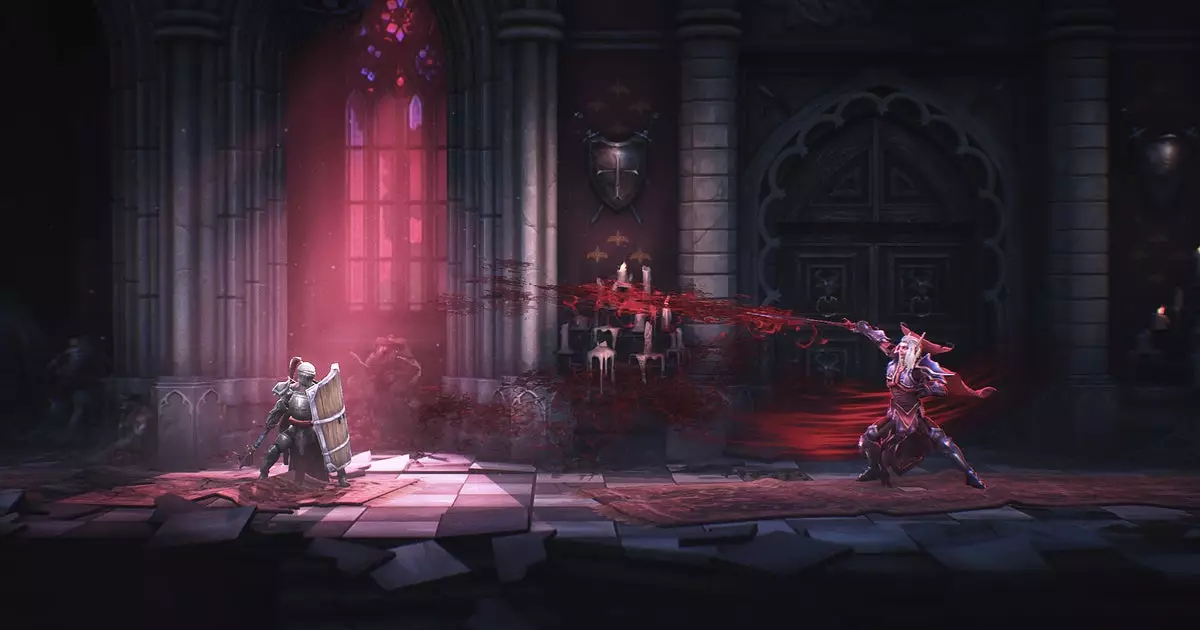“Mandragora: Whispers Of The Witch Tree” is not your average 2.5D title in the gaming realm; it echoes the design aesthetics of the Souls genre while pushing boundaries with its thematic focus on maturity and atmospheric storytelling. Developed by Primal Game Studio, it invites players to traverse a hauntingly beautiful and perilous world inhabited by grotesque yet enticing creatures. While the term “Soulsvania” may seem convoluted, suggesting a blend of the challenging gameplay that fans have come to appreciate and the exploration elements typical of the Metroidvania sub-genre, it does not do justice to the uniqueness of Mandragora’s vision.
At its core, Mandragora delves into the consequences wrought by humanity’s surrender to monstrosities, creating a rich canvas for engaging storytelling. Through the player’s journey in the land of Faelduum, where walled confines and ignorance reign, the game constructs a narrative filled with simmering tension and moral dilemmas. The snippet provided on their Steam page sets the stage for an immersive experience, emphasizing a need to reclaim joy from a world steeped in despair.
The choice of classes alongside intricate skill trees injects an RPG flavor that encourages personal investment. Players can cultivate their characters, akin to alchemists experimenting with the byproducts of their journey. The focus on customization not only enhances gameplay versatility but allows a deeper emotional connection to the choices made throughout the narrative, echoing important themes of freedom and resistance.
Visually, Mandragora stands out with its “painterly” aesthetic, a stark contrast to the mostly pixelated graphics of many indie titles. This design choice serves to amplify the grotesque beauty and decay of its environment — a world filled with charred remnants and crumbling structures, set against vibrant and provocative backdrops. The juxtaposition of stunning visuals with sinister undertones reflects the duality of beauty and horror, inviting players to explore the depths and consequences of their decisions while forging their path in a society that has buried its collective head in the sand.
The involvement of Brian Mitsoda, celebrated for his narrative work on “Vampire: The Masquerade – Bloodlines,” lends a powerful gravitas to the game’s storytelling. His expertise implies that players can expect nuanced characters and a more sophisticated narrative than is often found in this genre. Mitsoda’s philosophy of concocting original narratives by merging various influences brings freshness, ensuring that Mandragora doesn’t simply rely on a regurgitated plotline.
In Mitsoda’s own words, depth can be derived from characters rather than convoluted plots. A cliché story might serve as a backdrop but captivating characters can keep players tethered to the game. Thus, the prospect of facing darker choices alongside morally grey characters adds layers of complexity, urging players to reflect on their instincts and motivations.
While the game operates within a familiar framework for “Souls-like” enthusiasts, it differentiates itself through its thematic richness and unique visual presentation. This infusion of narrative-driven gameplay diverges from the conventional design tropes seen in many modern action-RPGs, emphasizing a cerebral approach to player choice. By offering a gameplay experience that combines strategic action with emotional weight, Mandragora is set to resonate with those looking for reinforcement of narrative within intense gameplay.
With a scheduled release date of April 17th, 2024, anticipation is simmering among fans and newcomers alike. Mandragora promises not only to be a game but an experience that amalgamates visual splendor with compelling storytelling, steering clear of the conventional pitfalls typical of its genre. As players prepare for the rise of the Witch Tree, the question remains – are we ready to confront the moral depths of our choices in a world where shadows loom large, waiting to be dispersed by the light of our actions? Through Mandragora, players might just discover that their decisions carry more weight than they could ever imagine.

